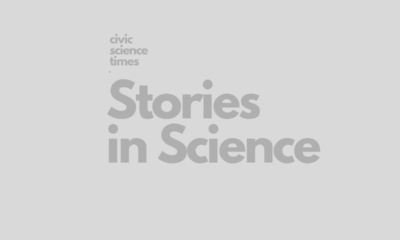Civic Science Observer
The power of mentorship: paving the road for underrepresented students interested in STEM
by Ngobitak Ndiwane – Margaret E. Mahoney Fellow at the New York Academy of Medicine –
[dropcap]A[/dropcap]s an African-American woman studying Science, Technology, Engineering, and Math (STEM) at a predominately white institution, I often found myself having few people I could turn to for advice and mentorship. It was a common occurrence for me to look around my university’s lecture hall – often filled with 200+ students – and find less than a handful of people who looked like me. When times got hard, as they often did in the science world, I usually found myself feeling hopeless and defeated. As a freshman in college, I had few people to turn to for advice, support, and encouragement. Now, as a recent university graduate who will be starting dental school this summer, I can say a large part of my distress during my first year in college was due to a lack of effective mentorship. But things changed for the better soon enough. At the end of my freshman year, I was fortunate enough to get accepted into an academic enrichment program called Summer Medical and Dental Education Program (SMDEP). Looking back, I can now say with confidence that this program made all the difference.
The Robert Wood Johnson Foundation1 created SMDEP to increase the number of highly qualified medical and dental school applicants from underrepresented minority groups which include African Americans, Hispanics, and American Indians. This program caters to freshmen/sophomore students and has expanded its target group to also include the economically disadvantaged and those who come from rural areas regardless of their racial or ethnic background. This 6-week residential program has sites at Yale, Duke, University of Virginia, Case Western, University of Nebraska, Columbia, UCLA, University of Texas-Houston, Rutgers, University of Washington, Howard, and University of Louisville.
At SMDEP, I was finally placed in classrooms filled with people who not only looked like me, but those who had also gone through similar struggles in the sciences. I realized that my efforts were not futile, and – most importantly – I was not alone. By taking different science classes that summer and engaging in various seminars led by public health and medical leaders in the field, I received the mentorship and support that I had craved for in college. At the beginning of the program, I was unsure if I was actually capable of getting into dental school given that my GPA was way below published school acceptance averages. I figured that, at best, I would have to wait at least a year or two before applying. By the end of the program, however, I left determined to get into at least one dental school by the time I finished my undergraduate degree. Two and a half years later, I can proudly say I accomplished and exceeded my goals and expectations.
So if you’ve gotten this far into the article, you’re probably thinking that this is a shameless plug by some sponsor advocating for this program. Though I am indeed shamelessly advocating for the program, rest assured that I am not a sponsor but a student who has overcome barriers and wants to help future generations do the same and even more. Therefore, I advocate for not just SMDEP, but for all academic enrichment programs that cater to minority, college-level students pursuing STEM careers. There are several of these programs out there that are free to participate in. In fact, the majority of programs even pay participants a stipend. These programs are fantastic.
However, I think one of the biggest issues for some students is the lack of knowledge that these programs even exist. I often think about how ironic it is that the people whom these programs aim to serve are often the last people to hear about them. Advocacy and mentorship go hand in hand, especially for those pursuing careers in STEM. I encourage minorities in STEM to actively seek out mentors, whether through their own universities, academic enrichment programs, or basically anywhere where they can find a role model they can trust. We all need someone to look up to, someone who pushes us to work harder, someone who is willing to advocate for us and motivate us to keep striving to be the best. In a world that’s often filled with disappointments and barriers, a little encouragement can make all the difference.
For more additional information on SMDEP, please visit (1) www.smdep.org
The CS Media Lab is a Boston-anchored civic science news collective with local, national and global coverage on TV, digital print, and radio through CivicSciTV, CivicSciTimes, and CivicSciRadio. Programs include Questions of the Day, Changemakers, QuickTake, Consider This Next, Stories in Science, Sai Resident Collective and more.

-
 Audio Studio1 month ago
Audio Studio1 month ago“Reading it opened up a whole new world.” Kim Steele on building her company ‘Documentaries Don’t Work’
-
Civic Science Observer1 week ago
‘Science policy’ Google searches spiked in 2025. What does that mean?
-
Civic Science Observer1 month ago
Our developing civic science photojournalism experiment: Photos from 2025
-
Civic Science Observer1 month ago
Together again: Day 1 of the 2025 ASTC conference in black and white
Contact
Menu
Designed with WordPress






















